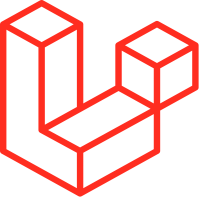
Laravel - History
Laravel was developed and created by Taylor Otwell to provide an excellent substitute for the older PHP framework named CodeIgniter. This was because CodeIgniter did not offer such great features as support for built-in customer authentication and proper user authorization.
In June 2011, Laravel released its first beta version, and later in the same month, Laravel 1 got released.
Versions of Laravel
Laravel was initially released in June 2011 as an alternative to the CodeIgniter framework. It was created as an attempt to provide a more advanced alternative to CodeIgniter, which was a popular framework at the time. It quickly gained popularity due to its clean syntax and tools for tasks such as routing and authentication.
Laravel 1:
Laravel 1 also known as "Laravel Spark," was released in August 2011. It was a lightweight version of the framework designed for rapid application development.
Laravel 2:
Laravel 2 was released in September 2011, introducing support for controllers and a new syntax for routes.
Laravel 3:
Laravel 3 was released in February 2012 and introduced a number of new features, including the Eloquent ORM (Object-Relational Mapping) and Blade templating engine.
Laravel 4:
Laravel 4, also known as "Laravel Illuminate," was released in May 2013. It was a major update to the framework that introduced a new syntax and a number of additional features, including support for tasks and events, a built-in API for testing, and support for multiple file systems.
Laravel 5:
Laravel 5 was released in February 2015 and introduced a number of new features, including support for middleware, a new routing system, and support for package development.
Laravel 6:
Laravel 6 was released in September 2019 and introduced a number of new features, including support for semantic versioning, a new job scheduler, and support for Laravel Vapor, a serverless deployment platform for Laravel applications.
Laravel 7:
Laravel 7 was released in March 2020 and introduced a number of new features, including a new HTTP client, improved routing speed, and support for custom Eloquent casts.
Laravel 8:
Laravel 8 was released in September 2020 and introduced a number of new features, including Laravel Jetstream, a new application scaffolding tool, improved authorization responses, and a new migration snapshot feature.
Laravel 9:
Laravel 9 continues the improvements made in Laravel 8.x by introducing support for Symfony 6.0 components, Symfony Mailer, Flysystem 3.0, improved route:list output, a Laravel Scout database driver, new Eloquent accessor / mutator syntax, implicit route bindings via Enums, and a variety of other bug fixes and usability improvements.
Laravel 10:
Laravel 10 continues the improvements made in Laravel 9.x by introducing argument and return types to all application skeleton methods, as well as all stub files used to generate classes throughout the framework. In addition, a new, developer-friendly abstraction layer has been introduced for starting and interacting with external processes. Further, Laravel Pennant has been introduced to provide a wonderful approach to managing your application's "feature flags".
Laravel 11:
Laravel 11 continues the improvements made in Laravel 10.x by introducing a streamlined application structure, per-second rate limiting, health routing, graceful encryption key rotation, queue testing improvements, Resend mail transport, Prompt validator integration, new Artisan commands, and more. In addition, Laravel Reverb, a first-party, scalable WebSocket server has been introduced to provide robust real-time capabilities to your applications.
The current version of Laravel is Laravel 11.x
– Laravel has come a long way since its initial release in 2011. It has continued to evolve and add new features, making it a popular choice for web application development using PHP. It continues to be actively developed and supported, with new versions and features being released regularly.